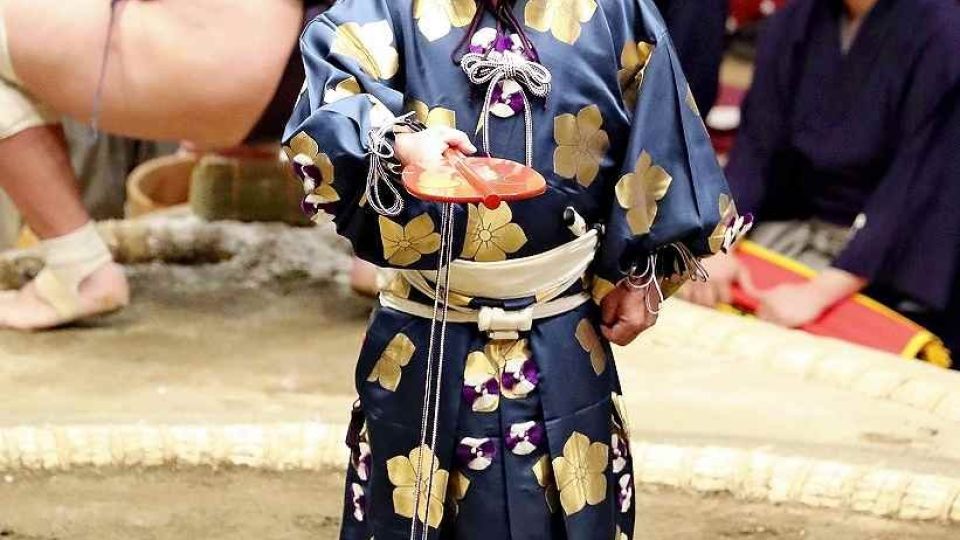December 1, 2023
TOKYO – After nine years on the shelf, the most prestigious name for the kimono-clad referees in the ring will be brought back into action.
At a meeting of the Japan Sumo Association’s board of directors in late September, it was decided that Shikimori Inosuke, who holds the highest referee rank of “tate-gyoji,” will become the 38th Kimura Shonosuke, starting at the New Year tournament in January.
The name Shonosuke, which had gone unused since the 37th retired following the Spring tournament in 2015, is the referees’ equivalent of a yokozuna. Both Shonosuke and Inosuke are the sole names assigned to tate-gyoji, but the former definitely occupies a higher position of prestige. The “family names” of all referees are either Shikimori or Kimura.
As a rule, the world of referees operates on a seniority system. For a referee to earn promotion to an upper rank, he must endure the wait until an older referee reaches retirement age or leaves for other reasons. For that reason, very few referees ever get the chance to reach the level of Shonosuke before the end of their careers.
The current Inosuke was promoted to tate-gyoji in 2019 (making him the 41st Inosuke), at which time there was no Shonosuke. In other words, Inosuke was effectively the most elite referee, but had not been assigned the name Shonosuke. Now 64, he will reach the JSA-designated retirement age of 65 in September next year, meaning he will officiate as Shonosuke for a mere five tournaments.
Although the seniority system holds sway, performance is also taken into account in the referees’ world. The biggest cause of demerits is to make a mistake in declaring the winner of a match. The tate-gyoji would carry a small sword on his person — preparation for committing suicide to take responsibility for making a mistake.
The current Inosuke has made his share of missed calls, said to be the reason for the lengthy wait before earning the Shonosuke name.
The final day of the Kyushu Grand Tournament that ended on Sunday marked his last day as Inosuke.
Normally, an Inosuke officiates the final two bouts each day, while a Shonosuke in principle only handles the last match. That is said to stem from the final match having a heavier burden of responsibility.
“I will officiate as if my life depended on it,” Inosuke said of assuming the Shonosuke mantle.
As his refereeing career nears its end, it was a declaration of a grim but brave resolve.

